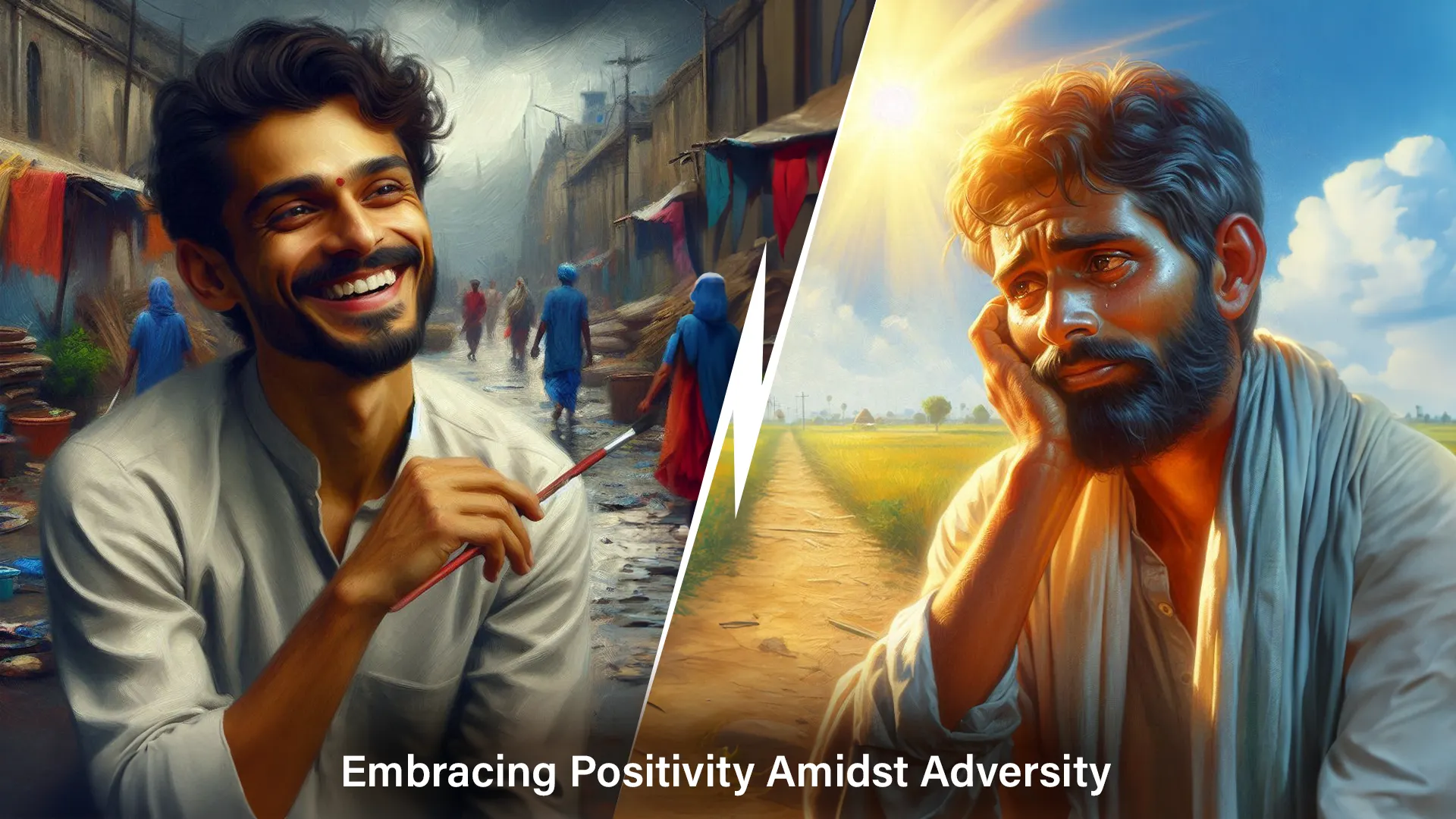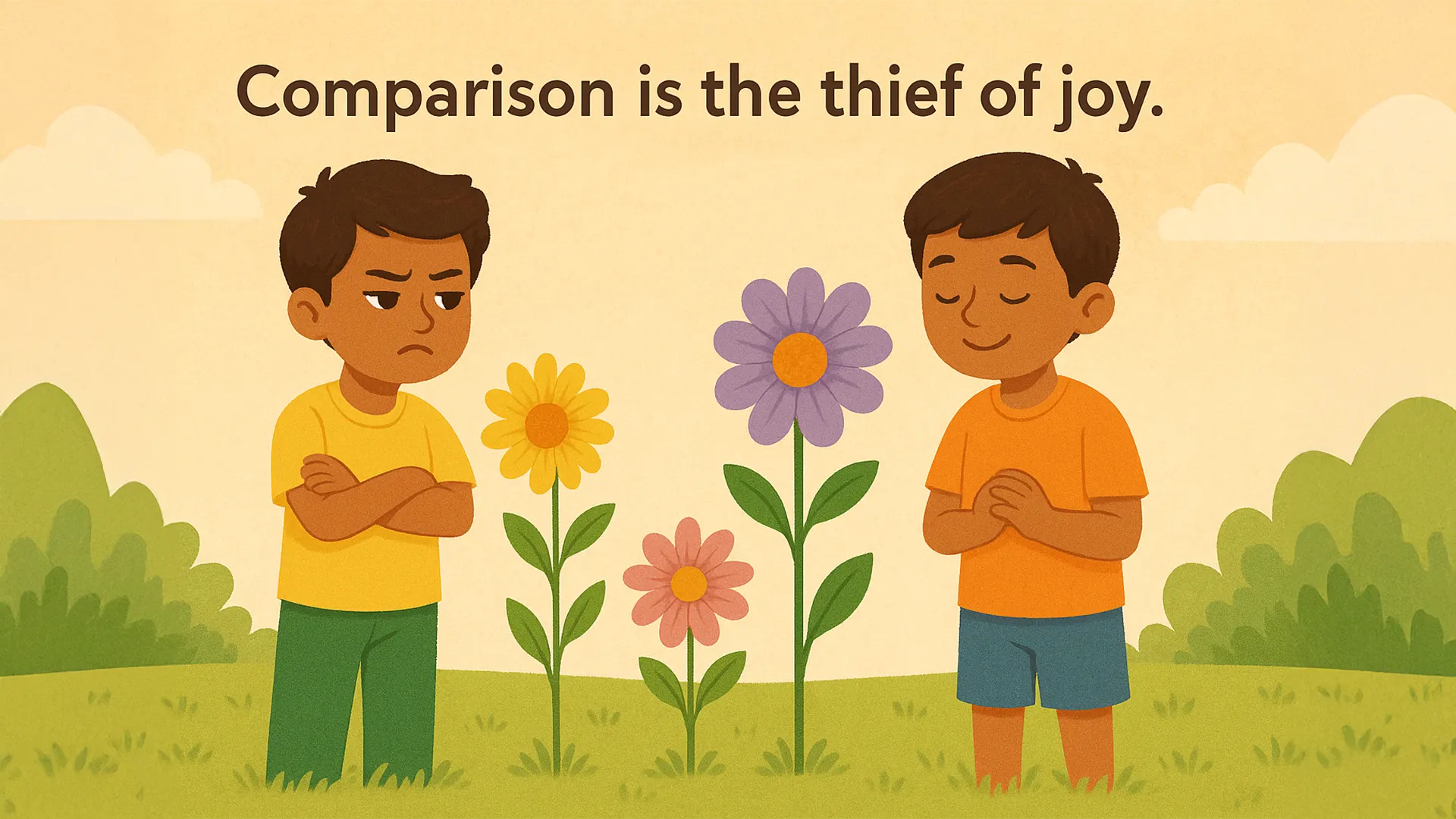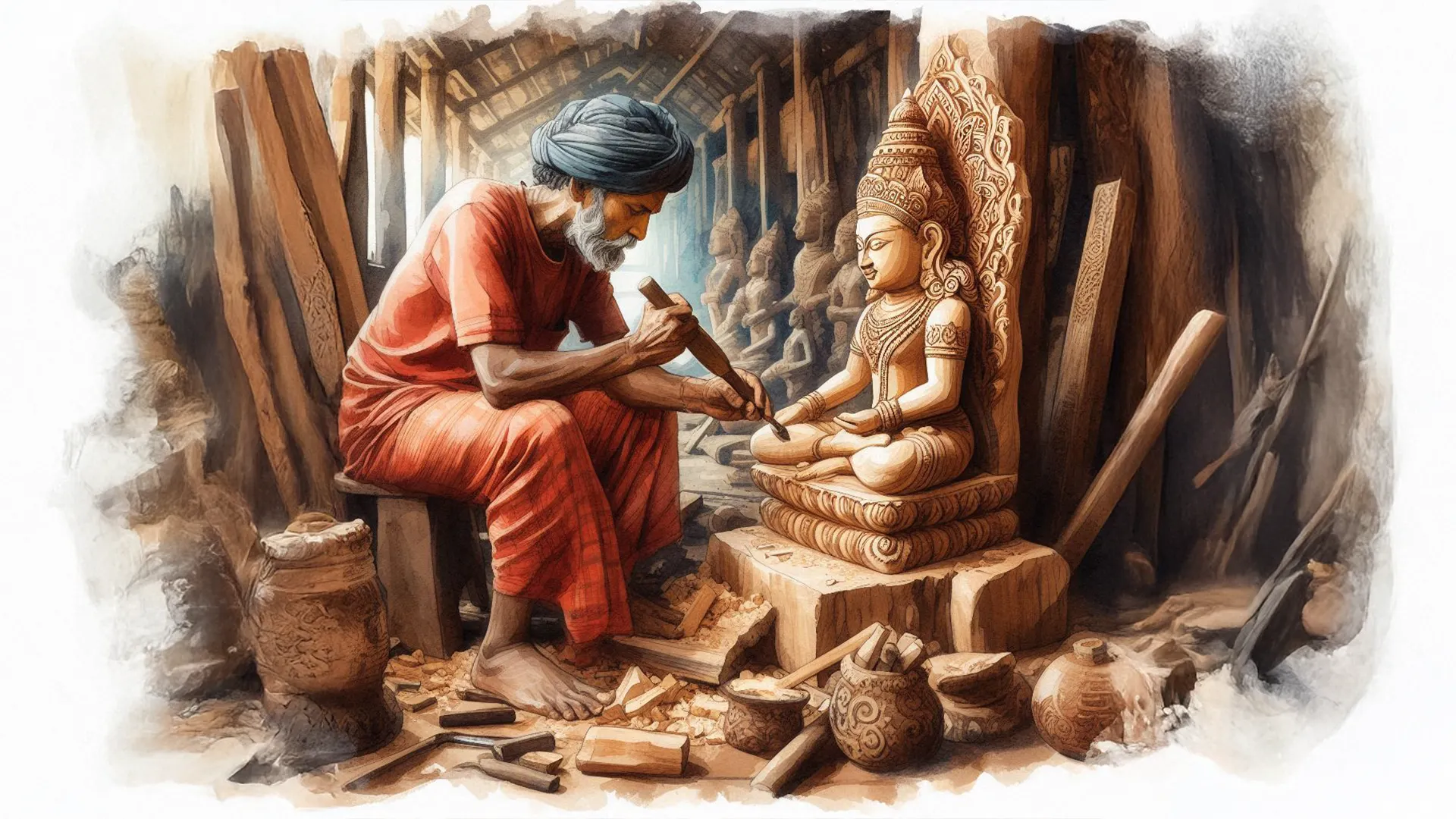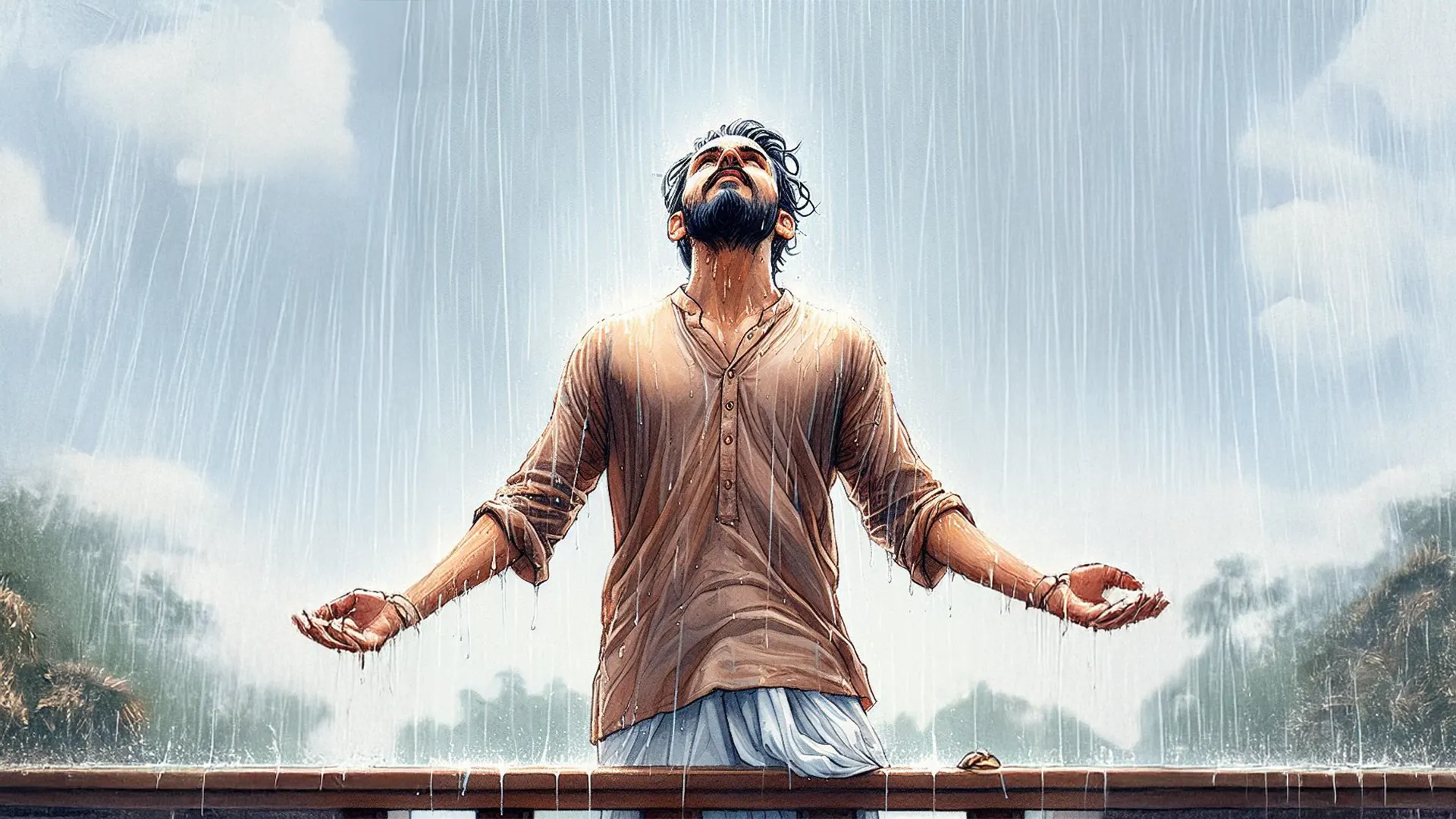Life doesn't always unfold favourably; that's just the nature of the world. It often feels like a rigorous school of hard knocks, constantly testing us with challenging circumstances. When faced with difficulties, it's important to consider how we will respond and rise to the occasion. Here's where our mind comes in.
Our mind is the factory that creates thought. Thoughts are subtle bundles of energy that impact our health, determine our attitude, and create our feelings of happiness and distress. So, a negative situation can trigger a cascade of negativity within us if we let it control our thoughts.
This is why there's a gap we need to understand between the environment and our minds. Very often, when we are not aware of that gap, we feel controlled by circumstances. We think circumstances can dim the light and disturb us without realising that in any circumstance, we have the choice to choose our thoughts as we wish.
We can manage our response to any situation by consciously choosing our thoughts. If we cultivate positive thoughts in the face of difficulty, we'll experience a more positive emotional state and be better equipped to handle the situation. This mind management is the key to transforming hardship into an opportunity for growth.
Saint Tukaram Finds Blessings in Adversity
Saint Tukaram's life is a testament that external circumstances cannot affect our inner peace. In the state of Maharashtra, Saint Tukaram lived a life steeped in devotion and simplicity, his days resonating with unwavering chants to Shree Vithal, a form of Shree Krishna. His wife, however, stood in stark contrast, known for her fierce nature that often sparked tumultuous exchanges between them.
One fateful day, Tukaram's pantry was bare, pushing his wife to the edge of patience. While Tukaram lost himself in soulful devotional songs, his wife reached her breaking point. She demanded that he set aside his spiritual pursuits and earn money to support their household.
Being the dutiful husband, Tukaram headed to his shop. The day turned out to be in his favour, enabling him to earn a modest sum. However, driven by his kind heart, he selflessly shared his earnings with beggars along the way, returning home with only a single sugar cane.
Upon presenting the sugar cane as his day's meagre earnings, his wife's anger exploded. In a fit of rage, she struck Tukaram on the head, shattering the cane in two. Unfazed, Tukaram calmly suggested they each take a piece of the broken cane and savour it.
Retreating to his worship room, Tukaram reflected on the day's events, speaking softly, "Oh, Rukmini Vithal, You are kind and merciful. You have blessed me with a wife that keeps my worldly attachments minimal." He perceived his wife's actions as not a source of misery but a divine blessing. To him, her challenging demeanour was a gift from Shree Vithal, ensuring his attachment to the material world remained slight. He found a guide in her, steering him towards detachment and deeper spiritual connection.
Through Tukaram's eyes, every hardship was a hidden opportunity to fortify his faith and devotion. His story is a powerful reminder that our perception shapes our reality and grace and growth exist even in adversity.
This positive outlook teaches us not to let disturbances disrupt our peace of mind. External challenges are seen as blessings, as everything unfolds for the greater good—a testament to seeing God's blessings in every situation.
Viktor Frankl's Journey of Choice and Resilience
In the heart of Europe, amidst Austria's rolling hills, Viktor Frankl immersed himself in psychology, passionately exploring the human mind. But as World War II erupted, his life took a harrowing turn. Caught in the Nazis' ruthless persecution of Jews, Frankl, along with his family, faced the horrors of concentration camps. Separated from his loved ones, he endured Auschwitz, where humanity was stripped bare.
Amidst unimaginable suffering—naked, cold, and subjected to brutal labour—Frankl clung to an unwavering belief: the freedom to choose one's thoughts.
In defiance of despair, his smile baffled guards who questioned his sanity. "My choice," he'd assert, a testament to his inner liberty. Surviving against staggering odds, Frankl carried forth a profound insight to Israel, where he penned "Man's Search for Meaning." This seminal work resonated globally, emphasising life's trials as opportunities for personal choice and growth.
Frankl's legacy is profound: happiness is not dictated by circumstance but by our response to it—a choice that defines our freedom amid life's challenges. His life exemplified the truth that, despite adversity, the power to find happiness rests within the space between what happens to us and how we choose to respond.
Taking Responsibility for One's Thought
Surdas, Tulsidas, Mirabai, Tukaram, Narsi Mehta—did they lead easy lives? Far from it. Yet they consistently nurtured loving and positive thoughts. Unfortunately, many fail to grasp the crucial gap between external situations and our choice of thoughts. Without this awareness, they operate like slot machines.
What's with the slot machine analogy? It's simple: a slot machine reacts predictably to every coin inserted. Similarly, reactive individuals respond automatically to external stimuli—good or bad. Mature individuals, however, choose not to react. Life may throw challenges our way, serving lemons instead of lemonade. The crucial decision—to sour or sweeten—is entirely ours.
Responsibility lies in our ability to respond—our thoughts and moods are our responsibility. Reactive individuals shirk this responsibility, blaming others for their feelings. "Why are you upset?" they'll say. "Because my relative treated me poorly," or "My boss scolded me; what else can I feel?" It's a mindset that absolves them of personal agency, attributing their character to destiny or circumstance.
In contrast, proactive individuals acknowledge their role in shaping their lives. They accept responsibility for their past and present choices and commit to making better ones for a brighter future. Proactivity means not letting external events dictate inner peace or happiness—it's a mindset that empowers personal growth and resilience.
In devotion, external circumstances cannot be blamed for not doing our sadhana daily. If we don't take charge of our mind, the mind will become our worst enemy. Take inspiration from the saints who remained blissful in God's consciousness despite facing torment. Remember the stories of Prahlad and Vibheesan to encourage spiritual aspirants that external things can't do anything if faith and surrender to Hari-Guru are very high.
We all have the freedom to view our environment and relatives and work as we wish. The way we utilise this choice has its consequences. Our attitudes and sentiments develop into our personalities, so replacing wretched thoughts with awesome ones can dispel the gloom.
The key takeaway is that external situations are often not in our control, but we have the power to adjust our attitude towards them. Progress in the science of mind management can only happen when we take responsibility for our state of mind and start changing the thoughts we harbour. If we wish to progress, we alone are responsible for our state of mind.









What our Participants say